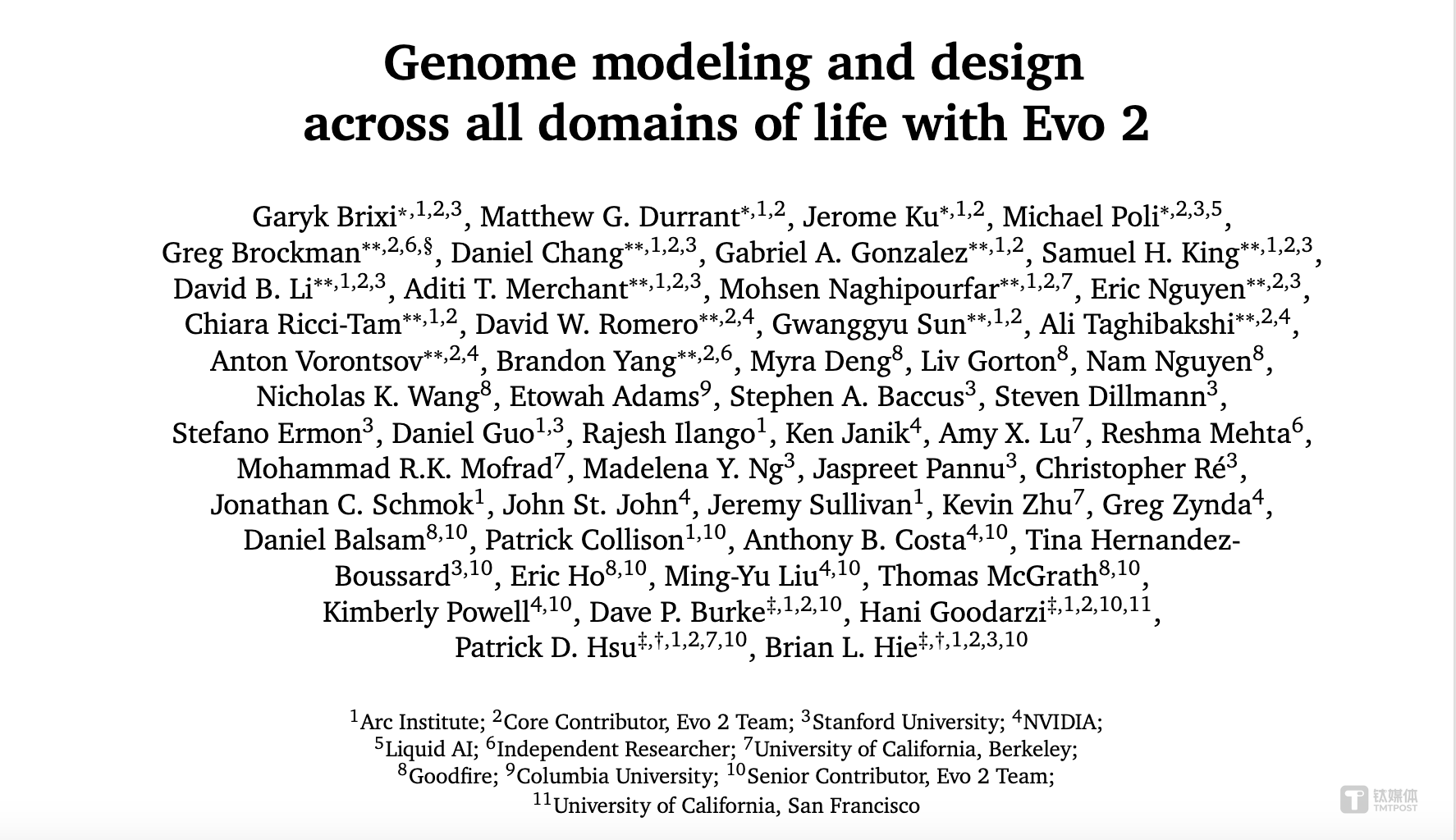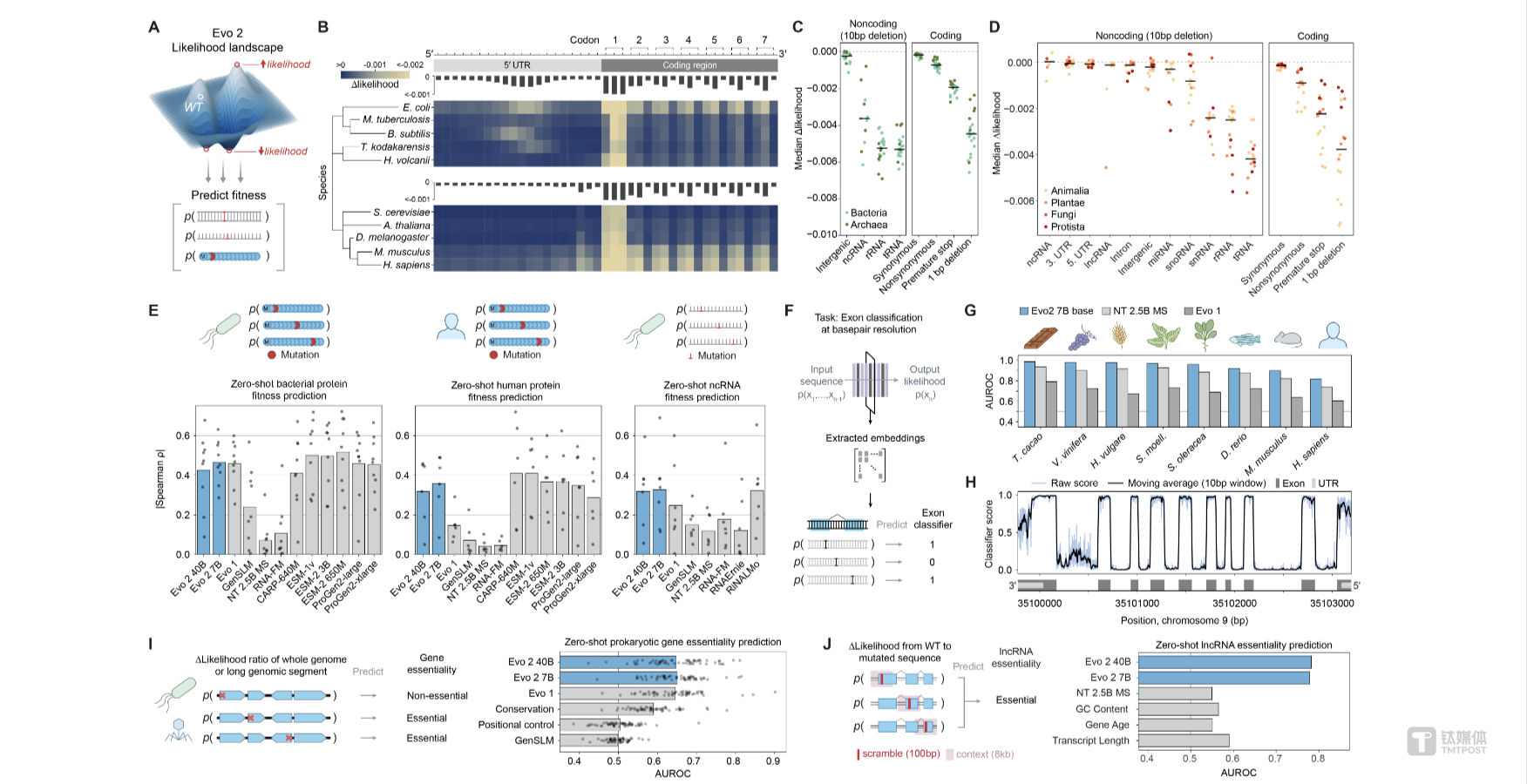
(Image Source: Unsplash)
TMTPOST -- Researchers from China and the United States on Friday made simultaneous announcements regarding major advancements in AI for biological research, marking a significant milestone in the field of AI-driven science.
In a major development, U.S. tech giant NVIDIA introduced Evo2, an open-source AI biological model, developed in collaboration with the Arc Institute, Stanford University, the University of California, Berkeley, and the University of California, San Francisco. With a remarkable 40 billion parameters, Evo2 encompasses data from 93 trillion nucleotides across 128,000 species. This model is set to play a crucial role in molecular research, precision medicine, drug development, and synthetic biology. Evo2 is now available to researchers worldwide, who can access its source code, training data, and parameters for free through a web interface.
At the same time, in China, the Institute for Artificial Intelligence Industry Research (AIR) at Tsinghua University, alongside Beijing Shuimu Molecular, launched the upgraded version of BioMedGPT-R1, an open-source, multimodal AI model for biomedicine.
The new version builds on the previous BioMedGPT model, incorporating the distilled DeepSeek R1 model. With 17 billion parameters, BioMedGPT-R1 achieved an impressive 67.1% accuracy on the U.S. Medical Licensing Examination (USMLE), bringing it closer to the performance level of human experts.
Tsinghua AIR was founded by Zhang Yaqin, a renowned professor of intelligent science at Tsinghua University and a foreign member of the Chinese Academy of Engineering.
These releases underscore the growing importance of AI for Science (AI4S) research, as both Evo2 and BioMedGPT-R1 signal a leap forward in AI's role in advancing biological and medical research.

The Rise of AI in Biological Research
NVIDIA CEO Jensen Huang highlighted the importance of AI in biological research during the 2024 GTC Conference, calling it one of the three key directions for AI development. "For the first time in human history, biology has the opportunity to become engineering, not just science," he said.
This sentiment was echoed by Chinese academician Wang Jian, who emphasized that while AI is still far from solving all scientific problems, it has the potential to revolutionize research by bridging gaps between disciplines. "AI is not just a tool for science, it’s a tool for scientific revolution," he stated.
AI's growing influence in biological sciences is evident in its ability to tackle complex problems that were previously unimaginable. Models like AlphaFold, which predicts protein structures, have already demonstrated AI's potential to transform biology. Now, models like Evo2 and BioMedGPT-R1 are taking AI's role further, offering new ways to explore gene sequences, proteins, and even design novel biological tools.

Evo2: Expanding the Frontiers of Genetic Research
Evo2, developed by bioengineer Patrick Hsu's team at the Arc Institute, is designed to handle both coding and non-coding DNA, providing a broader scope than earlier protein prediction models like AlphaFold. Evo2 can predict how genetic mutations in cancer-associated genes, like BRCA1, could impact human health, achieving over 90% accuracy in distinguishing benign from potentially harmful mutations. This opens the door to faster, more accurate genetic analysis, enabling quicker drug development and disease research.
Evo2's ability to process multi-gene structures and regulatory regions further enhances its potential. While AlphaFold focuses on protein structures, Evo2 integrates genomic data with epigenomics, proteomics, and structural prediction tools, making it a more versatile resource for genetic research.
The model also excludes pathogens from its training data, addressing safety and ethical concerns. Evo2 can design genetic modifications, identify mutations, and even create entirely new biological systems, signaling a future where AI may play a pivotal role in biotech innovation.
On the same day, Tsinghua University and Shuimu Molecular unveiled BioMedGPT-R1, an upgraded version of their open-source biomedical AI model. With 17 billion parameters, BioMedGPT-R1 offers improved deep reasoning capabilities for biomedical applications. The model's ability to integrate multimodal data (text and biological data) makes it highly effective for tasks like drug discovery and medical reasoning. It achieved an accuracy rate of 67.1% on the USMLE, placing it in the realm of human experts and commercial models.

BioMedGPT-R1’s ability to perform in-depth analyses of drug molecules and predict drug targets positions it as a valuable tool for pharmaceutical R&D. Its success in biomedical Q&A tasks highlights its potential to transform how we approach medical research and diagnostics.
The Future of AI in Biological Sciences
The advancements of Evo2 and BioMedGPT-R1 are part of a broader wave of progress in AI for biological sciences, which is rapidly accelerating the pace of research. Models like DeepSeek and AlphaFold are leading the charge, but the competition is heating up, with major players like OpenAI, Alibaba, and others continually iterating on their models.
As AI continues to push the boundaries of biological research, experts predict it will lead to faster, more efficient drug development, enhanced diagnostic capabilities, and breakthroughs in genetic engineering. The rise of AI in biosciences is not just reshaping research methodologies; it’s opening up new possibilities for how we understand and interact with life itself.
In this fast-evolving field, the next few years are poised to usher in unprecedented transformations, giving humanity the tools to not only decode the mysteries of life but potentially redesign the very fabric of biology itself.
更多精彩内容,关注钛媒体微信号(ID:taimeiti),或者下载钛媒体App

